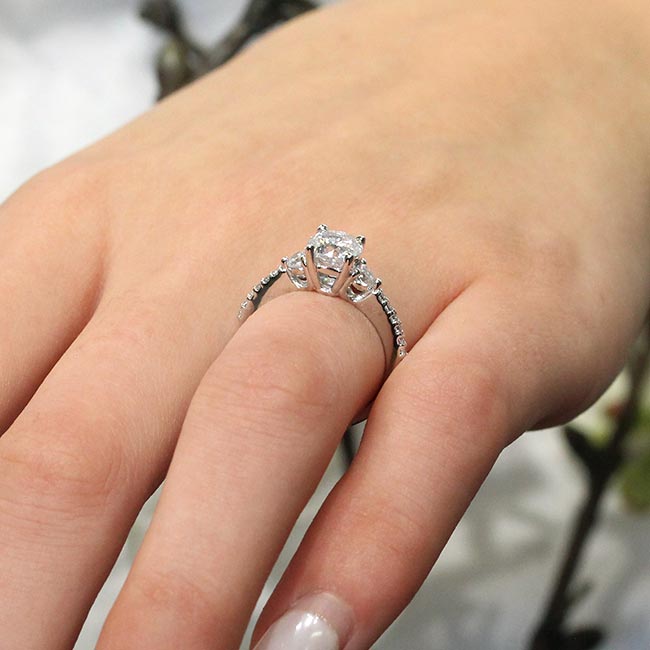The European Union (EU) is a complex and multifaceted entity, deeply rooted in the historical struggles and achievements of its founding figures. As the EU continues to evolve and seek ways to strengthen its identity, the concept of “Brand Europe” has emerged as a key focus. One intriguing idea to boost this brand is the creation of a hero movie reimagining the EU’s founding father. This blog explores how such a film could reshape perceptions of European unity and identity.
The EU’s Founding Fathers
The establishment of the EU was driven by visionary leaders who believed in a unified Europe as a path to peace and prosperity. Among these founding fathers are Jean Monnet, Robert Schuman, and Konrad Adenauer, whose efforts laid the groundwork for the EU's creation.
- Jean Monnet: Often considered the architect of European integration, Monnet's strategic vision for a united Europe was crucial in forming the European Coal and Steel Community, the precursor to the EU.
- Robert Schuman: A French politician whose proposal for a shared coal and steel market marked the beginning of the EU. His ideas laid the foundation for economic and political cooperation in Europe.
- Konrad Adenauer: The first Chancellor of West Germany, Adenauer was instrumental in promoting European integration as a means of securing lasting peace and economic stability.
These figures played pivotal roles in shaping modern Europe, and their legacies are fundamental to understanding the EU’s origins and goals.
The Concept of "Brand Europe"
“Brand Europe” refers to the EU’s collective identity and image. It encompasses the values, ideals, and aspirations that the EU represents to both its citizens and the world. In contemporary times, this brand is under pressure due to political challenges, economic crises, and identity issues. A hero movie could play a significant role in reinforcing and revitalizing this brand.
A film that reimagines the EU’s founding father as a hero could serve as a powerful tool for:
- Boosting European Unity: By highlighting the heroic efforts of the EU's founders, the movie could reinforce the importance of unity and cooperation among European nations.
- Enhancing Public Engagement: A compelling cinematic portrayal could capture the imagination of the public and foster a deeper connection with the EU's history and values.
- Promoting European Values: The film could showcase the ideals of peace, democracy, and solidarity that are central to the EU's mission.
The Hero Movie Genre
The hero movie genre has proven to be a powerful storytelling tool. Films in this genre often feature larger-than-life characters who overcome significant challenges to achieve great deeds. Examples of successful historical and biographical hero movies include:
- “The Darkest Hour”: A portrayal of Winston Churchill’s leadership during World War II.
- “Lincoln”: A film focusing on Abraham Lincoln’s efforts to end slavery in the United States.
These films blend historical accuracy with dramatic storytelling to create engaging narratives that resonate with audiences. A hero movie about the EU’s founding father could similarly combine historical events with dramatic elements to capture the essence of their heroism.
Reimagining the Founding Father as a Hero
Reimagining the EU’s founding father as a hero involves creating a narrative that highlights their extraordinary contributions and the challenges they faced. This process includes:
- Dramatizing Achievements: Emphasizing the key accomplishments of the founding father, such as pivotal diplomatic victories or visionary policies.
- Overcoming Adversity: Portraying the personal and political struggles they endured, and how they overcame these obstacles to achieve their goals.
- Symbolic Heroism: Representing their efforts as not just political achievements but as heroic acts that shaped the course of European history.
Balancing historical accuracy with engaging storytelling is crucial. While the film should remain true to historical facts, it can also incorporate fictional elements to enhance the dramatic impact.
Storytelling Techniques for Historical Figures
Effective storytelling is essential for bringing historical figures to life in a hero movie. Techniques include:
- Character Depth: Developing a multi-dimensional character that showcases both the strengths and vulnerabilities of the founding father.
- Dramatic Tension: Creating tension and conflict to drive the narrative forward and keep audiences engaged.
- Emotional Resonance: Crafting scenes that evoke empathy and connection with the protagonist’s journey.
These techniques help transform historical figures into relatable heroes, making their stories more compelling for modern audiences.
Character Development and Archetypes
In reimagining the EU’s founding father as a hero, identifying key character traits and archetypes is important:
- The Visionary Leader: Highlighting their forward-thinking approach and commitment to a unified Europe.
- The Brave Reformer: Emphasizing their courage in challenging the status quo and advocating for change.
- The Persistent Advocate: Showcasing their determination and perseverance in the face of opposition.
Developing a hero character with these traits helps create a narrative that resonates with the audience and underscores the significance of their contributions.
The Role of the EU’s Founding Father in History
Understanding the historical role of the EU’s founding father is essential for creating an accurate and impactful film:
- Key Contributions: Detailing their specific contributions to European integration, such as policy proposals, diplomatic efforts, and visionary ideas.
- Impact on Europe: Exploring how their work influenced the development of the EU and the broader European landscape.
- Historical Context: Providing background on the political, economic, and social conditions of their time to give viewers a comprehensive understanding of their achievements.
Portraying these aspects in the film helps highlight the heroism of the founding father and their lasting legacy.
Potential Plotlines and Themes
Several plotlines and themes could be explored in a hero movie about the EU’s founding father:
- Unity and Cooperation: A storyline focusing on the efforts to bring together diverse nations and foster collaboration.
- Peace and Reconciliation: Highlighting the role of the founding father in promoting peace and resolving conflicts.
- Vision and Innovation: Showcasing their forward-thinking ideas and how they transformed Europe’s future.
These themes resonate with the core values of the EU and can be effectively dramatized to engage audiences and convey the significance of the founding father’s contributions.
Casting and Portrayal
Casting is a critical aspect of bringing the founding father to life on screen:
- Ideal Actors: Selecting actors who can capture the essence of the historical figure while also bringing depth and charisma to the role.
- Respectful Portrayal: Ensuring that the portrayal is respectful and accurate, while also being engaging and accessible to modern audiences.
Choosing the right actor and portrayal style helps create a believable and compelling representation of the EU’s founding father.
Visual and Cinematic Style
The visual and cinematic style of the film plays a crucial role in setting the tone and immersing the audience:
- Historical Accuracy: Utilizing period-appropriate costumes, sets, and locations to accurately depict the era.
- Cinematic Techniques: Employing cinematic techniques such as lighting, color grading, and camera angles to enhance the dramatic impact.
- Symbolic Imagery: Incorporating visual symbols that reflect the themes of unity, peace, and vision.
A well-crafted visual style helps create an engaging and immersive experience for viewers.
Impact on European Identity and Politics
The film could have significant implications for European identity and politics:
- Reinforcing European Unity: By celebrating the achievements of the founding father, the film could strengthen the sense of shared identity and purpose among EU citizens.
- Influencing Public Perception: The movie could shape public perceptions of the EU and its values, potentially fostering greater support and engagement.
- Political Implications: The film might influence contemporary political discourse, highlighting the importance of the EU’s foundational ideals.
Understanding these potential impacts helps gauge the broader significance of the film project.
Challenges and Criticisms
Creating a hero movie about a historical figure involves several challenges and criticisms:
- Historical Accuracy: Balancing dramatic storytelling with factual accuracy can be challenging, and there may be concerns about the portrayal of historical events and figures.
- Public Reception: Different audiences may have varying reactions to the film, and there may be criticisms related to the portrayal of nationalistic or political elements.
- Budget and Production: Producing a high-quality historical film requires significant resources and expertise, which can pose logistical challenges.
Addressing these challenges is essential for producing a successful and impactful film.
Marketing and Audience Engagement
Effective marketing and audience engagement are key to the film’s success:
- Target Audience: Identifying and targeting key audiences, including European citizens, history enthusiasts, and political analysts.
- Promotional Strategies: Using trailers, social media, and film festivals to generate buzz and attract viewers.
- Engagement Campaigns: Creating campaigns that encourage discussion and reflection on the themes and messages of the film.
Strategic marketing helps ensure that the film reaches and resonates with its intended audience.
Final Thoughts
In conclusion, reimagining the EU’s founding father as a hero in a movie presents an exciting opportunity to enhance “Brand Europe” and engage audiences with the EU’s foundational values. By blending historical accuracy with compelling storytelling, such a film could celebrate the vision and achievements of the EU’s founders while reinforcing the importance of unity and cooperation in Europe. With careful consideration of casting, storytelling techniques, and marketing strategies, this project has the potential to make a significant impact on European identity and public perception.

.jpg)
.jpg)



 English (US) ·
English (US) ·